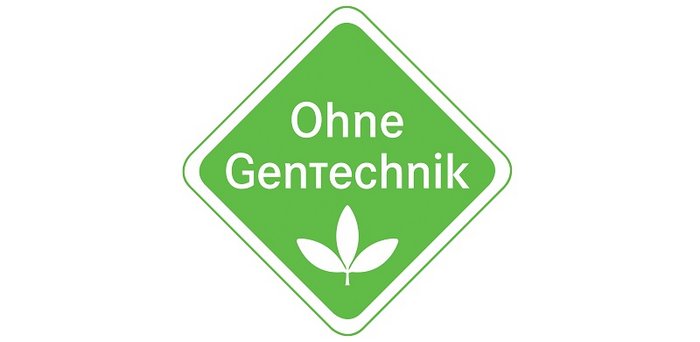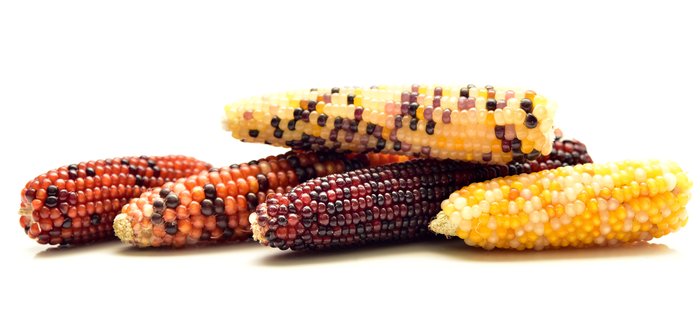News

VLOG survey: „Bundestag“ parliamentary groups on the future of "Ohne Gentechnik"
For the "Ohne Gentechnik" sector, there are trend-setting political decisions to be made in the new legislative period. All parties represented in the German parliament [Bundestag] have expressed their views on the subject in their election programs. VLOG wanted to know more and therefore asked the vice chairmen of the parliamentary groups responsible for the topic, except for the AfD, seven specific questions.

Authority apparently informed U.S. GMO manufacturer about VLOG "campaign"
The German Federal Agency of Consumer Protection and Food Safety [Deutsches Bundesamt für Verbraucherschutz und Lebensmittelsicherheit – BVL], responsible, among other topics, for genetic engineering checks in food and feed, informed the U.S. GM seed company Cibus in April about an alleged "new campaign" by the Association Food without Genetic Engineering [Verband Lebensmittel ohne Gentechnik – VLOG], according to a report of German news magazine DER SPIEGEL.
![[Translate to English:]](/fileadmin/user_upload/_processed_/0/7/csm_ENGA-Logo_800_531c438712.jpg)
"Ohne Gentechnik" umbrella organisation ENGA grows
The new European umbrella organisation of the European "Ohne Gentechnik" [Non-GMO] sector ENGA (European Non-GMO Industry Association) has already gained seven new members since its foundation. Further companies and associations who care about transparency and freedom of choice in GMO-free matters and who want to exert direct influence in Brussels, where the decisive course of GMO policy is set, are welcome!

Changeover: "Ohne GenTechnik" to become a certification mark
The "Ohne GenTechnik" seal will be changed to the new brand category "Gewährleistungsmarke" ["certification mark"] for independent standard issuers. All "Ohne GenTechnik" licensees will be asked to sign a new license agreement for this purpose. They have already been informed directly.

German Retailers Association BVLH calls for regulation and detection methods for new genetic engineering
The National Association of German Food Retailers (Bundesverband des Deutschen Lebensmittelhandels - BVLH) has now commented even twice on the subject of new genetic engineering: it is calling on the upcoming German government to focus vigorously on detection procedures. In view of the recently presented report of the EU Commission, it is clearly against deregulation.

3:3 on genetic engineering in "Bundestag" election manifestos
Genetic engineering is a topic in all the manifestos of the parties represented in the German Parliament [Bundestag] - mostly by exact term, sometimes also slightly veiled. Three of them are against genetic engineering on fields and plates and support regulating new technologies such as CRISPR, while three more or less clearly support its use and deregulation.

Aldi Initiative: more animal welfare also means less genetic engineering
Aldi has announced that by 2030 it will only offer fresh meat from husbandry categories 3 and 4. In addition to better husbandry, more space and outdoor exercise, this also means more "Ohne Gentechnik“ [Non-GMO]. This is because only non-GMO feed is allowed from husbandry category 3 and up. REWE and Edeka have announced that they will follow Aldi's example.

"Future commission“ supports regulation of new genetic engineering
The Commission for the Future of Agriculture ("Zukunftskommission Landwirtschaft" - ZKL) emphasizes the great importance of GMO-free production in Germany and freedom of choice for consumers and calls for the regulation of new genetic engineering methods such as CRISPR, including risk assessment and approval, taking into account the precautionary principle.

German Green Party in favour of regulation and labelling of new GMO
In their election manifesto, which has now been adopted at the national party conference, the Greens have clearly declared their support for the regulation and labelling of old and new GMOs. GMO-free production and consumers' freedom of choice shall be protected.

Europe's Food Retail Sector calls for clear regulation of New GMOs
The "Retailers' Resolution against Deregulating New GMOs" demands protection for "Non-GMO“ and organic products by the continued practice of the existing EU GMO legislation. All GMOs on plates and fields should remain strictly regulated in the EU, the precautionary principle and labelling must not be undermined.

Green-conservative coalition government: German state of Baden-Wuerttemberg to remain GMO-free
In their new coalition agreement, the Greens and the CDU (Christian Democrats, conservative party) have committed themselves to “GMO free”. GM plants will not be cultivated in the southwest German state in the future either. The same rules are to apply to new GMOs as to "old" GMOs.

New GMOs: EU Commission must make significant improvements
In its publication on the future handling of new genetic engineering methods, the EU Commission gives broad space to the positions of promoters of genetic engineering, but wants to stick to safety for consumers and the environment as guiding principles. Safety, protection of "Ohne Gentechnik" and organic farming as well as GMO labelling are explicitly mentioned, but fall far too short in the conclusions.

94 associations call for strict regulation of GMOs
In a joint position paper, a broad alliance of 94 NGOs from environmental protection, animal welfare, nature conservation, development policy, churches, consumer protection, agriculture, breeding and the food industry has called on the German government to continue to regulate and label all current and future genetic engineering methods and their products as GMOs.d zu kennzeichnen.

"Ohne Gentechnik" grows - preserve transparency!
In 2020, consumers in Germany spent around 12.6 billion euros on products with the "Ohne GenTechnik" (Non GMO) label, an increase of more than 12 percent. The market share in food is thus around 5.4 percent. To secure this success in the long term, new GMOs must also remain regulated as GMOs. After the publication of the EU study on the topic next week, the debate is likely to gain steam.


